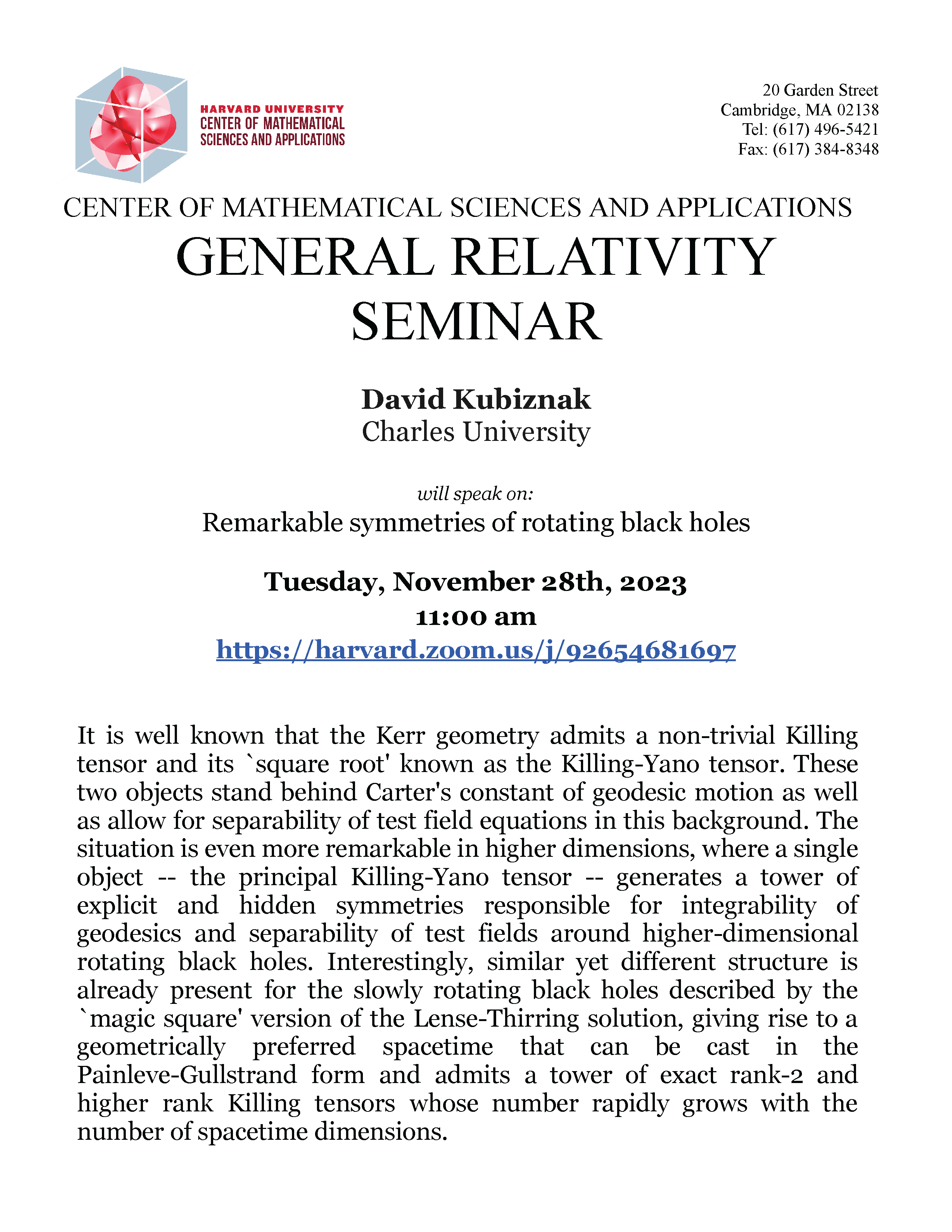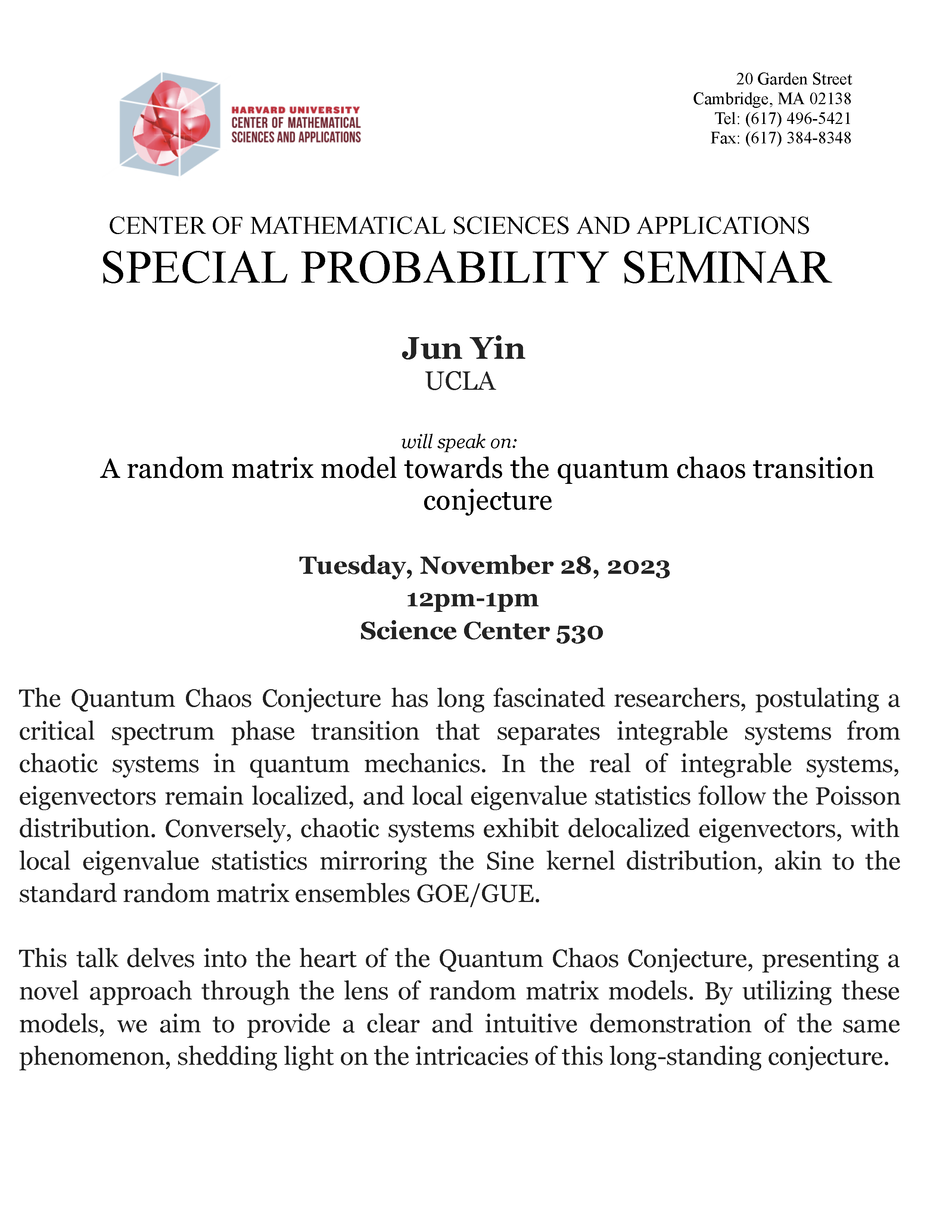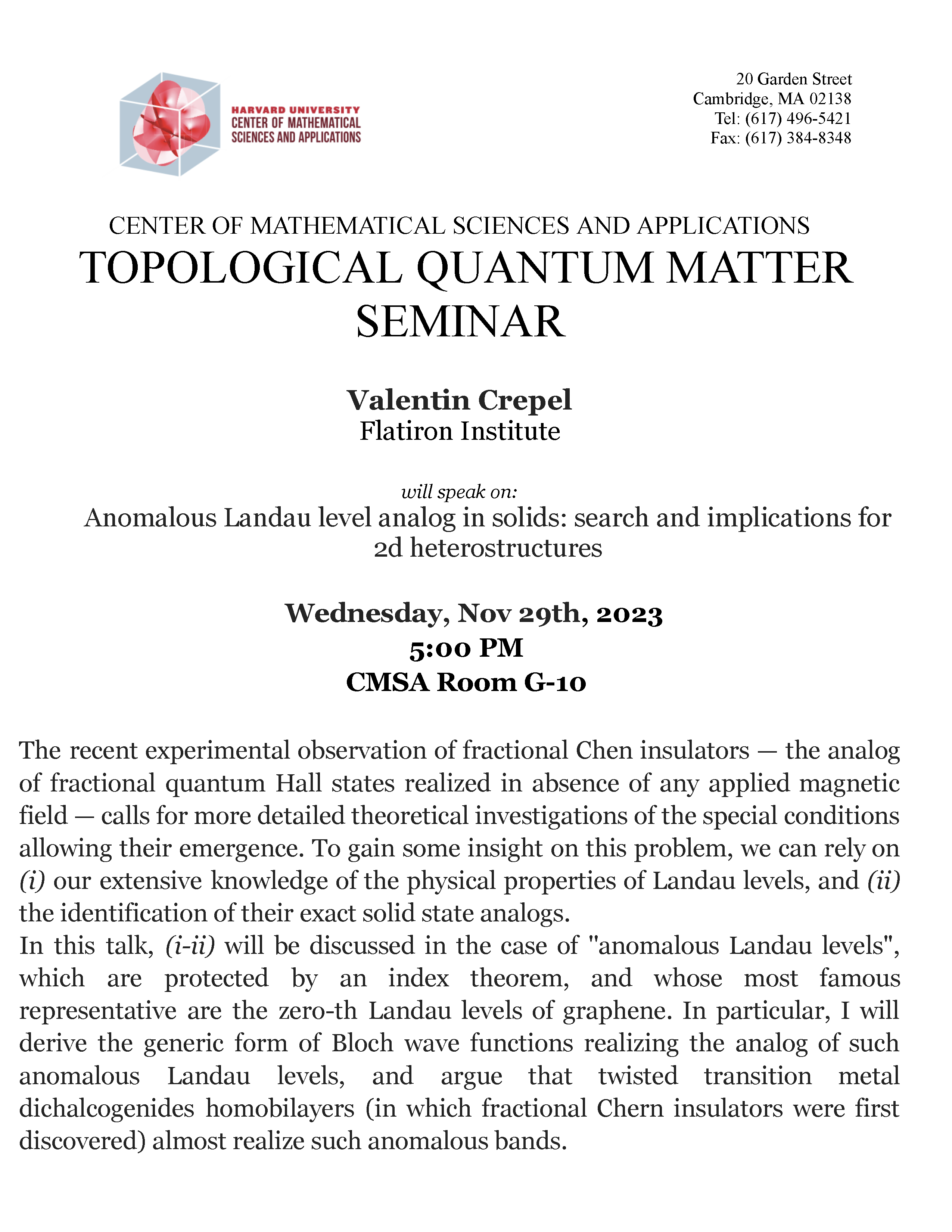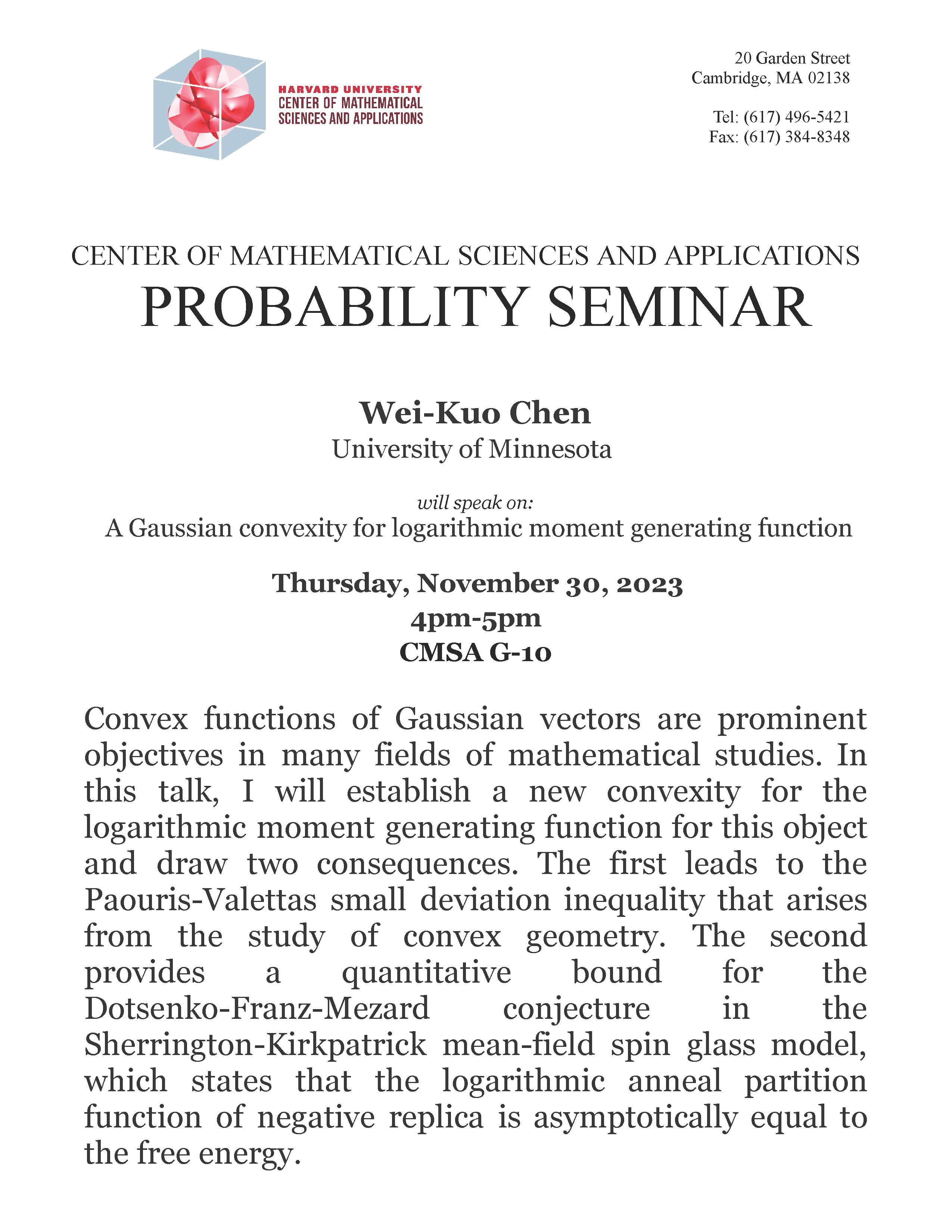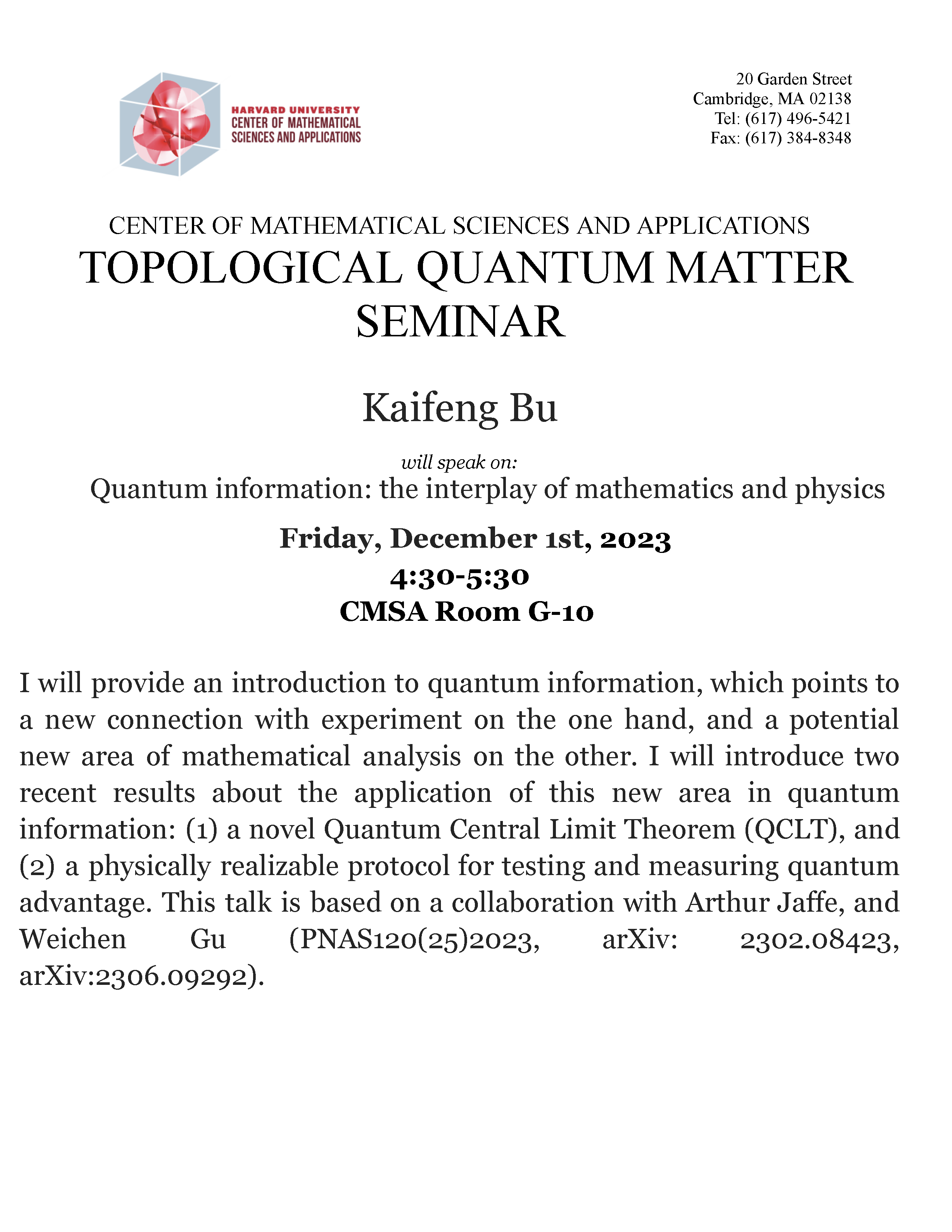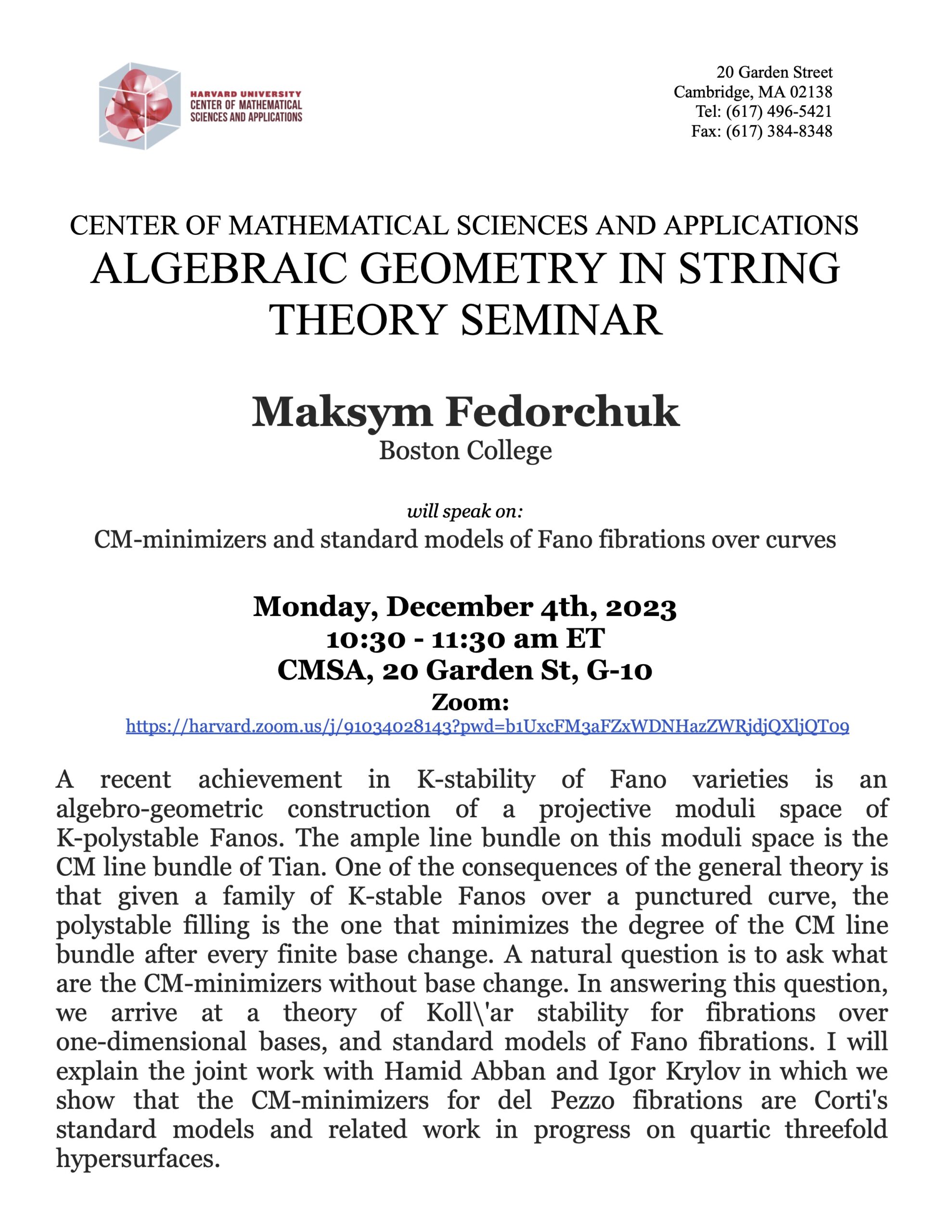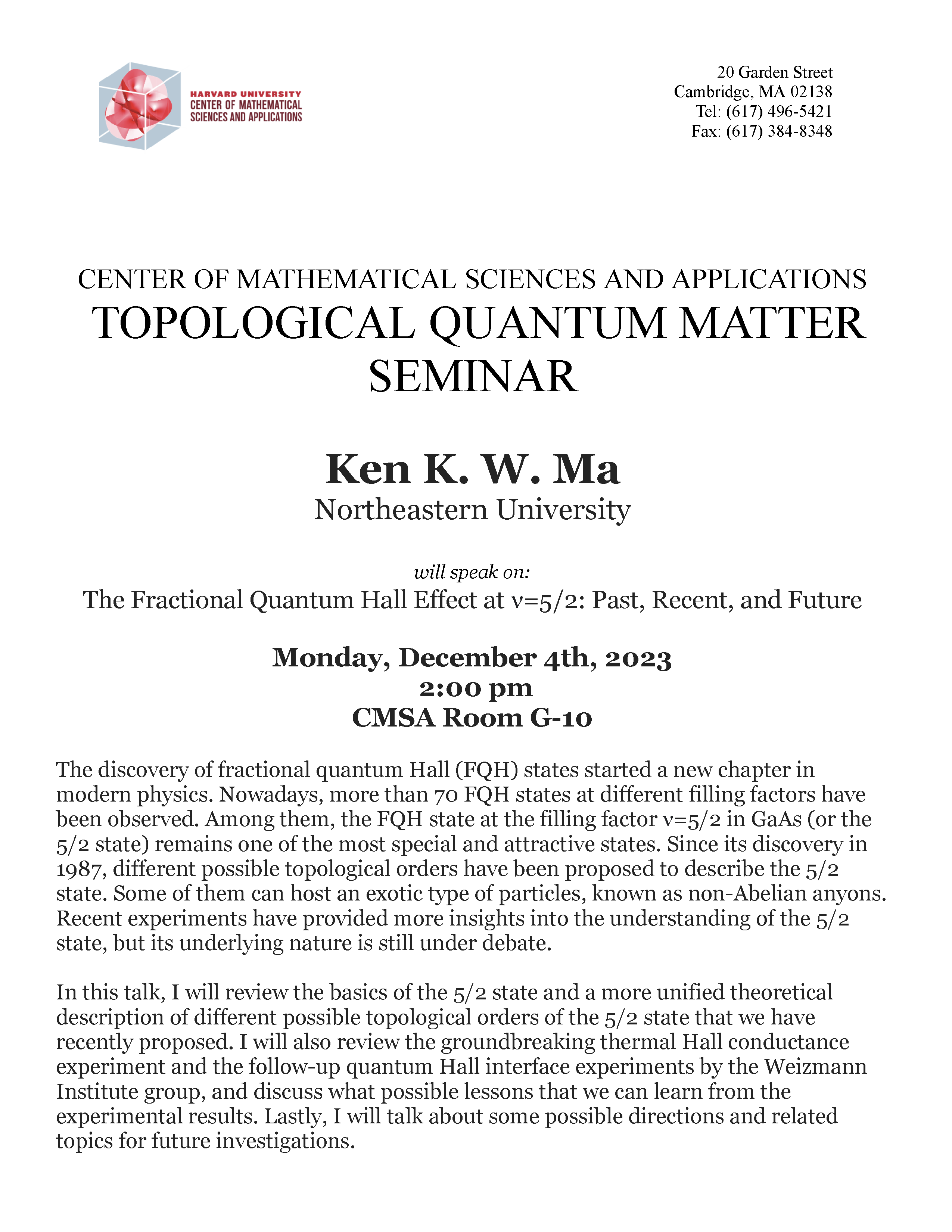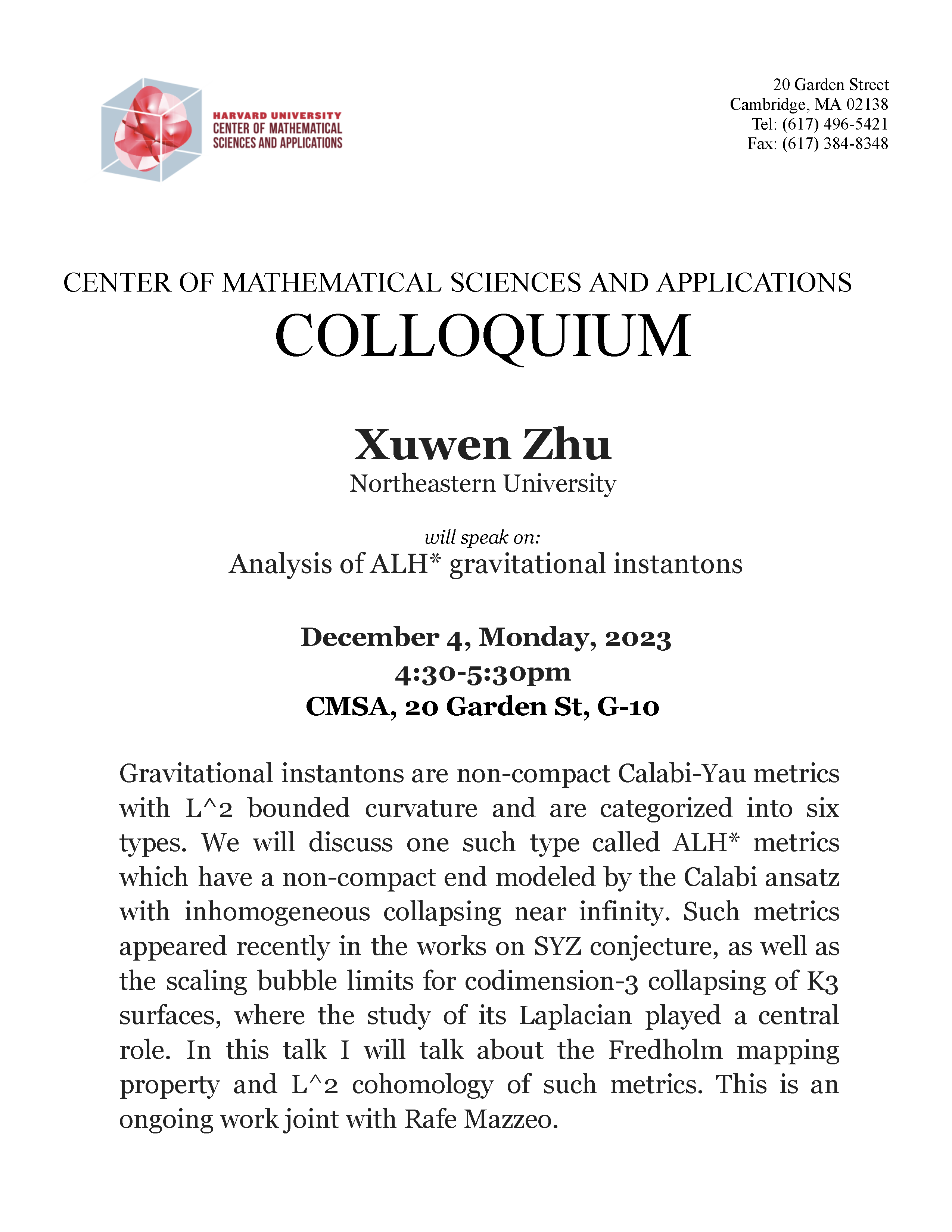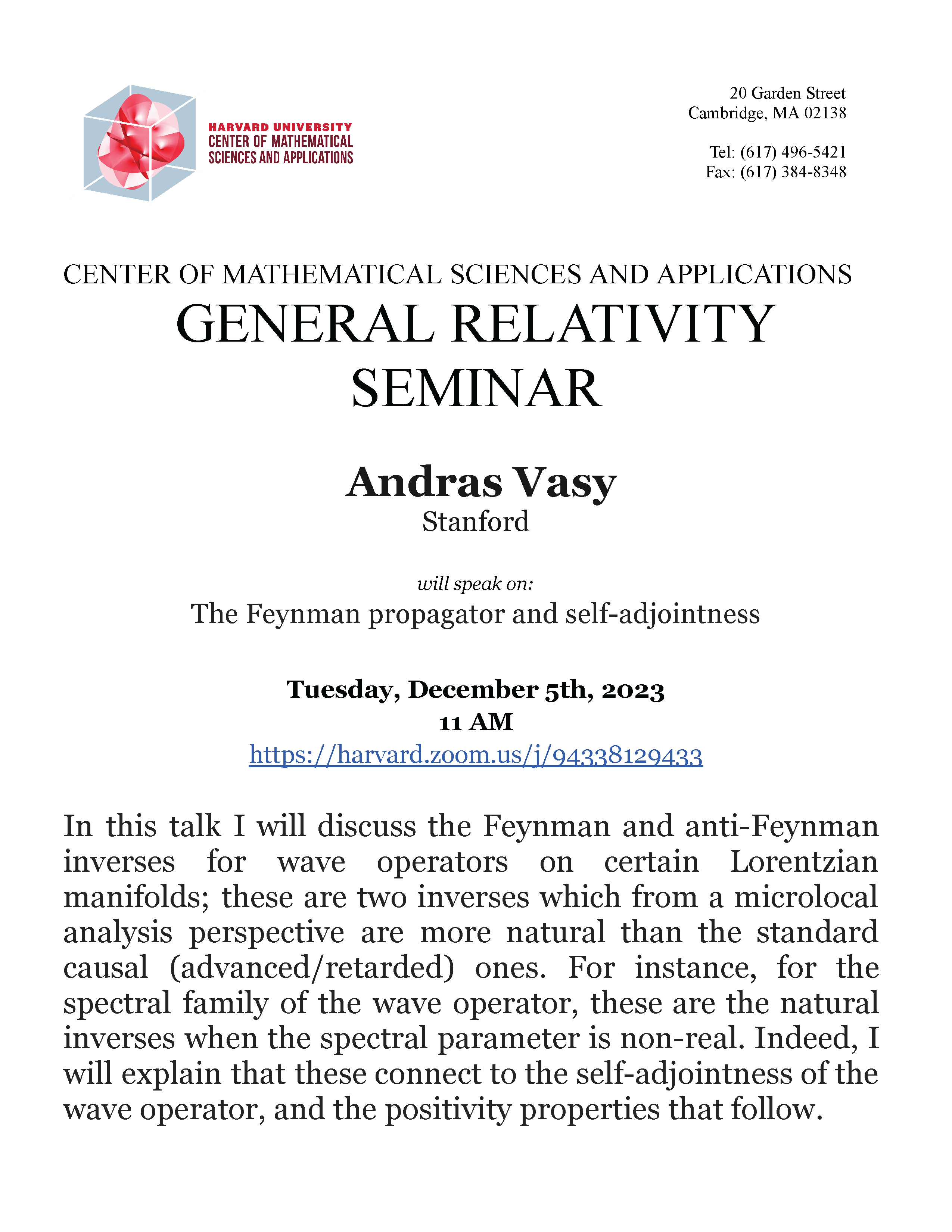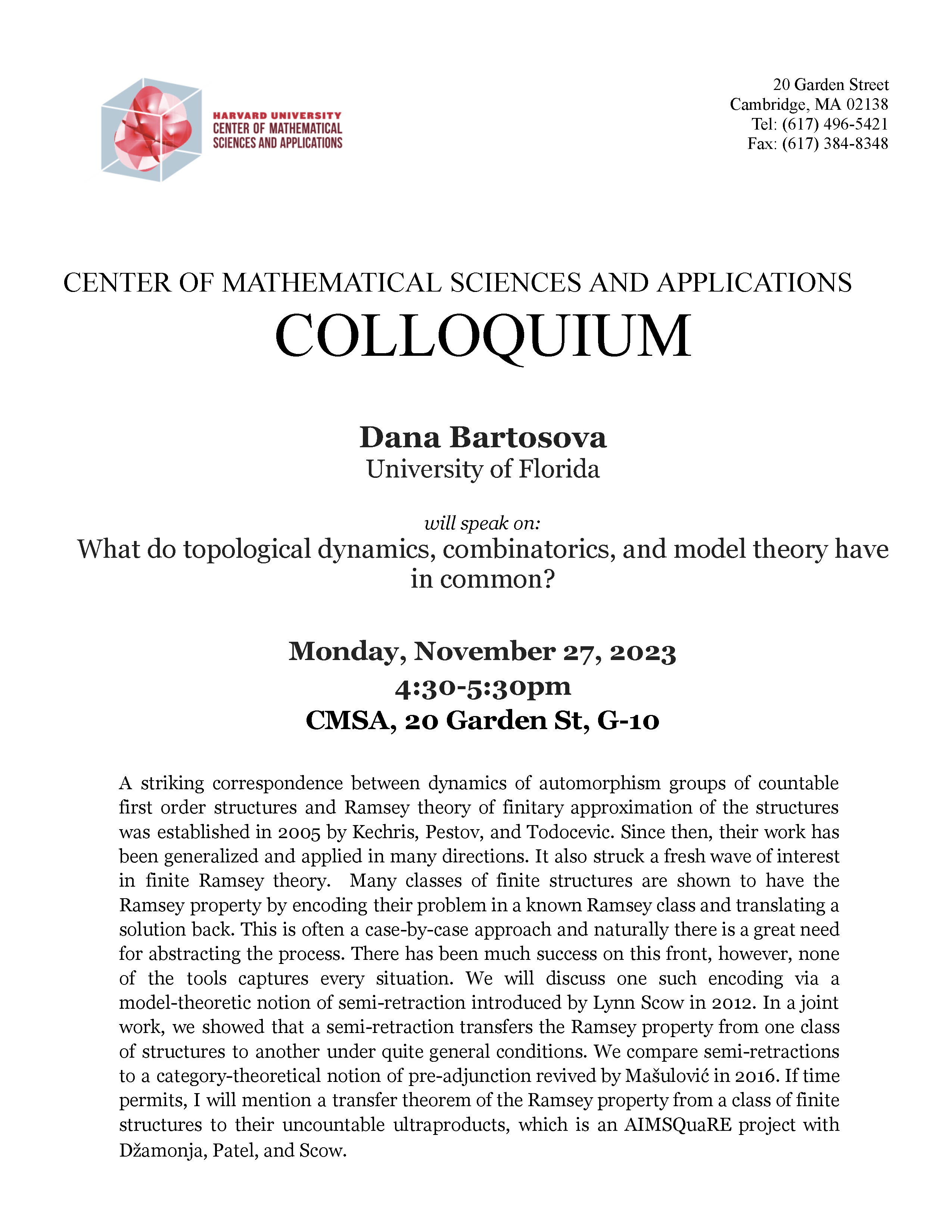
What do topological dynamics, combinatorics, and model theory have in common?
CMSA Room G10 CMSA, 20 Garden Street, Cambridge, MA, United StatesSpeaker: Dana Bartosova (University of Florida) Title: What do topological dynamics, combinatorics, and model theory have in common? Abstract: A striking correspondence between dynamics of automorphism groups of countable first order structures and Ramsey theory of finitary approximation of the structures was established in 2005 by Kechris, Pestov, and Todocevic. Since then, their work has been generalized […]

